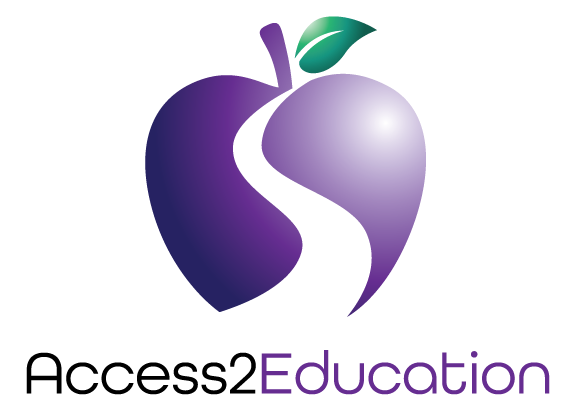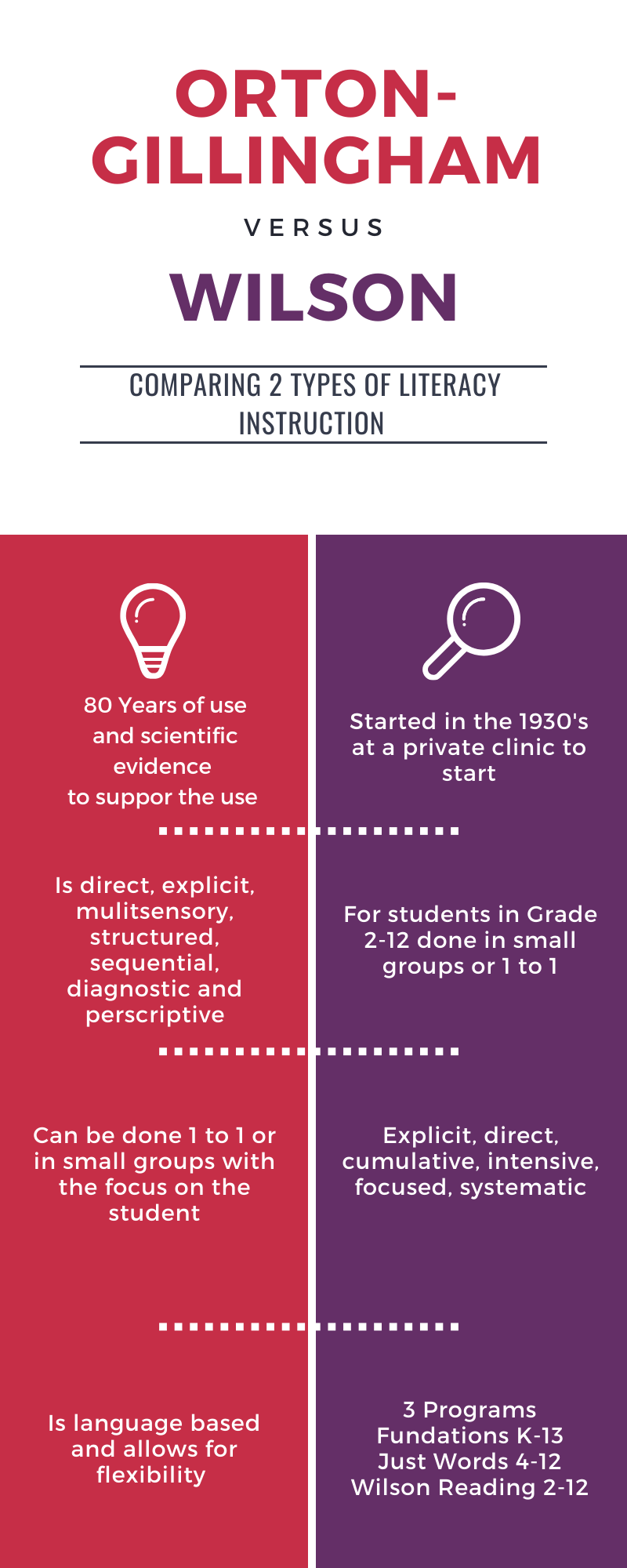Orton-Gillingham VS Wilson Reading
Have you been wondering what the difference is between Orton-Gillingham and Wilson Reading Program?
Has it been suggested that your child seek the support of one of these programs? Having a child who is struggling to read can be concerning and it can drive parents to look for support. Upon Googling you’ll find all sorts of programs and strategies and the two most popular for Dyslexia are Orton-Gillingham and Wilson Reading Program.
Supporting Struggling Readers
As parents, we worry about the academic achievements of our children. We want them to do well so they can become amazing, knowledgeable and productive members of society. I know for me personally when I realized my children were struggling to read I started to Google, explore and ask questions, to get them support. As a teacher, I thought I had the answer and I could help them learn to read. Turns out working with mom was not the answer (LOL). So I looked to tutors who could offer support for students with Dyslexia and specific reading challenges. In our house, our kids study French so this created a particular struggle in supporting our kids. In our case, I managed to find an agency which would be able to provide directed instruction in reading support. I knew that if I couldn’t teach them I was going to have to find a way to support them in a way that was going to support their learning and understanding of reading.
This week’s post is all about two well-known reading programs The Orton-Gillingham Program and The Wilson Reading Program, both of which share similar lines of thoughts and specific reading interventions. Both these programs focus on multi-sensory approaches and both with explicit teaching as the main framework for the lessons. Both can be taught one-to-one or in small groups and both help support students in their understanding of the process of reading by understanding the sound-letter relationship.
So what are these two programs and how are they the same and how are they different?
Here’s some information for you to consider when picking a program (please remember that I am not an expert and not currently doing either of these programs with my own children).
Orton-Gillingham and Wilson Reading Program focus on a multi-sensory approach.
Orton-Gillingham Program — https://www.ortonacademy.org/
This program was started by Samuel T Orton, a neuro-psychiatrist and Anna Gillingham a psychologist in the 1930 and has been used over the past 80 years as a proven scientifically researched and evidence-based on how reading happens. It is used with both adults and children.
Orton-Gillingham is…
The Orton-Gillingham Approach has been rightfully described as language-based, multisensory, structured, sequential, cumulative, cognitive, and flexible. These characteristics can be easily amplified and extended as they are in the following attributes.
The basic purpose of everything that is done in the Orton-Gillingham Approach, from recognizing words to composing a poem, is assisting the student to become a competent reader, writer and independent learner. (https://www.ortonacademy.org/resources/og-approach-principles/)
OG is often taught one-to-one or in small groups. Its approach is focused on the reader and is personalized, multi-sensory, diagnostic/prescriptive, systemic phonics, sequential, incremental and cumulative. The focus on the student allows for flexibility in its approach. With multiple studies showing how OG helps support students and their reading challenges, it is usually the go-to program for students who struggle with reading.
Wilson Reading Program - https://www.wilsonlanguage.com/
The Wilson Program was started in 1985 by Barbara Wilson and her husband Edward when they started their own private center. The Wilson Program is a younger reading program that operates with elements of OG but has a tiered system of approach. The program is direct and systematic in its approach and is a structured literacy program. Though it is research-based it has not been scientifically proven.
Wilson’s programs feature research-based, systematic, and multisensory structured language curricula to help every student succeed. Students learn to read step-by-step, starting with the basic structure and rules of our language, then building to more advanced lessons over time. We have seen our programs transform students’ lives by giving them the tools to read and write, building confidence, and empowering them to achieve their dreams. (https://www.wilsonlanguage.com/)
Wilson functions in a way that maintains 3 programs or tires Fundations K-3, Just Words 4-12 and Wilson Reading Program 2-12. Lessons are done in 3 blocks roughly 20-30 minutes with a minimum of 2 lessons per week. It can be done in groups of between 1 and 4 students. Each lesson consists of 5 main parts phonemic awareness, instruction of work analysis, reading and spelling, cumulative instruction and teaching of mastery.
Quick look at two different reading programs Orton-Gillingham and Wilson Reading
These two programs seem similar in nature but upon deep diving, they are slightly different. There is no magic key to which one will work best for your child. Tutoring takes time and creating a relationship that will build success takes time. Be sure to do your research and ask questions. If you’ve had an assessment done by a psychologist they may suggest a specific reading program and I would take that strongly into consideration. It is also possible that your child’s school or school board may be offering programs which are also based on either of these systems. Again ask questions and seek answers.
Reading is hard… Learning is hard… Having a learning disability can make it even more difficult. Don’t lose hope and keep seeking support. No matter which reading support system you choose you are doing your best to help support your child’s learning. Keep moving forward and keep advocating for your child to continue learning and growing.
Have you gotten your FREE IEP Binder Organizer yet? Join our mailing list to get yours and help keep your child’s school documentation in order.
Follow me on Instagram @access2educationtoronto











June can be a scary time of year for those who struggle with transitions. Looking at BIG T Transitions and little t transition can help you build a transition to ensures the success of your child.